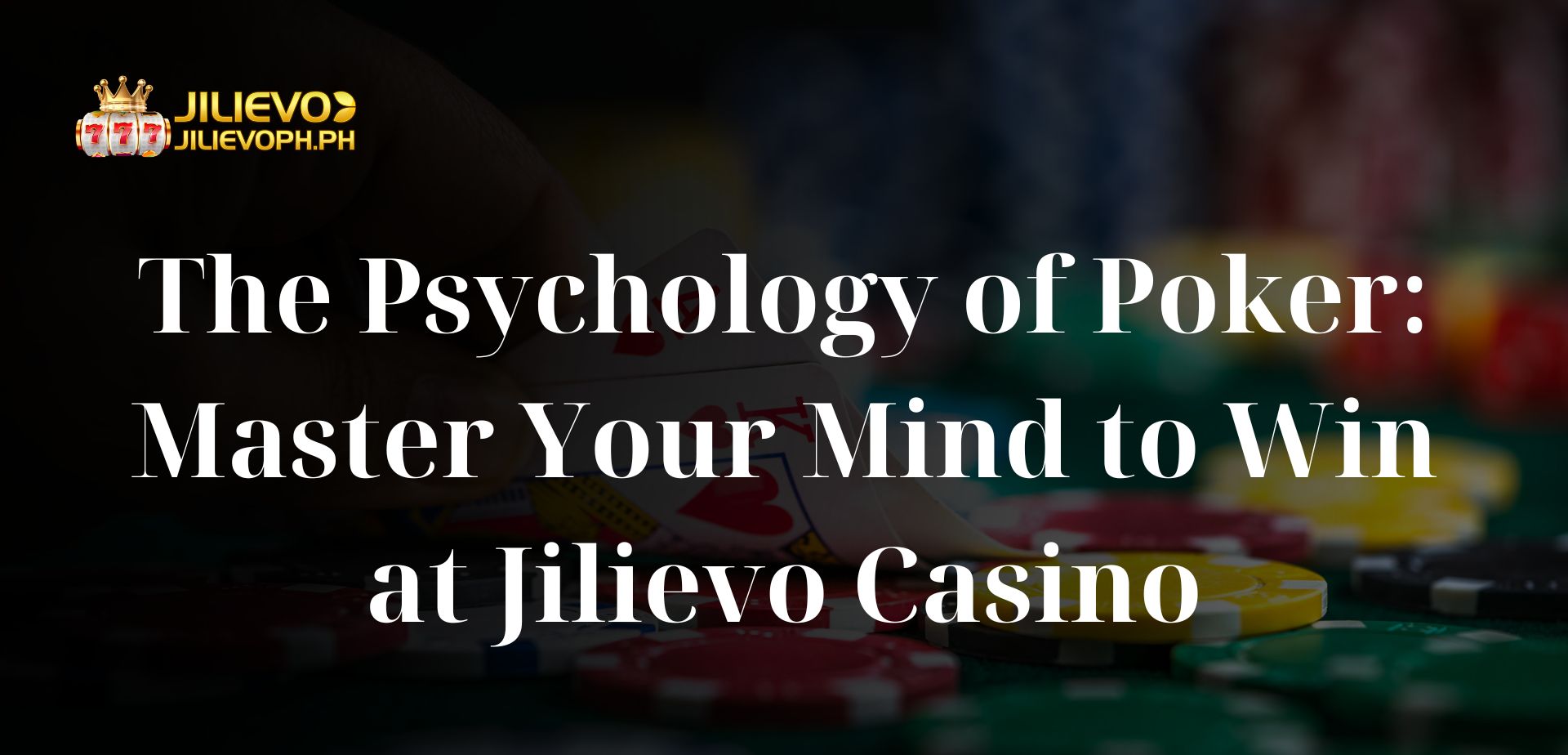Poker is notorious for its potential to alter fortunes in a single hand. However, beneath the poker face and stacks of chips lies a fascinating mental contest. Grasping the intricacies of psychology is just as vital as mastering the odds or honing your skills. An outstanding mental approach can elevate a player from being just good to truly exceptional, granting them the insight to outthink their rivals, make sound choices, and increase their winning rates. the psychology of poker Mind Games and the Atmosphere at the Table
Table of Contents
Toggle- What is poker psychology?
- Why does the mental game matter?
- Reading Your Opponents
- Mastering Your Own Emotions
- Presence: Establishing Dominance
- Psychology Beyond the Table
- Extra Materials to Boost Your Poker Mindset
- Poker psychology revolves around the mental and emotional dynamics that affect player interactions at the table. It involves decoding your opponents, regulating your emotions, and leveraging psychological vulnerabilities – both yours and those of others – to gain a strategic upper hand.
- Conclusion
What is poker psychology?
In poker, the cards are only part of the story. You can formulate strategies, but you’ll never have full insight into your opponents' hands. This uncertainty cultivates the perfect setting for psychological tactics and emotional exposure. A player adept in poker psychology is better poised to navigate the inevitable ups and downs, make informed choices under stress, and perceive when they’re being misled.
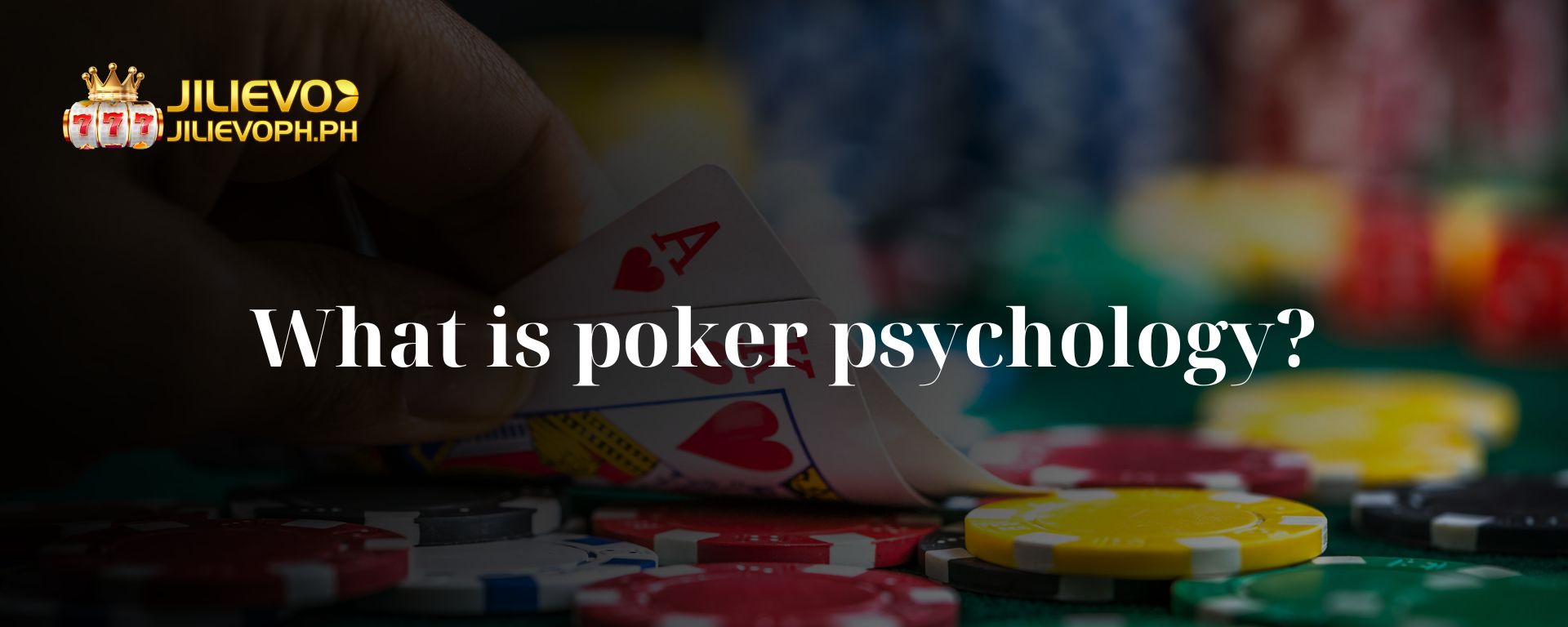
Why does the mental game matter?
Every move in poker, whether you act or hesitate, can provide hints regarding the strength of your opponent's hand. Mastering the art of reading these clues, known as 'tells,' is a key technique in your psychological toolkit.
Reading Your Opponents
Physical Cues: Body language can often reveal what’s brewing inside a player. Look out for:
Tells: Revealing Hidden Hands
- Alterations in posture or breathing rate
- Eye gestures (avoiding eye contact could reflex weakness, while intense gazes may signal a solid hand)
- Restlessness, shaking, or shifts in facial expressions
- Betting inclinations (quick bets can indicate confidence, while a pause might suggest doubt)
- Verbal Signals: Focus on not just what players say but also their delivery.
- Shifts in vocal pitch, tone, or speed can unveil nerves or enthusiasm.
- Casual comments or attempts at banter may serve as a distraction tactic or a means to extract information.
- . Recognizing when someone is bluffing can save you significant losses. Keep an eye out for these indicators:
Spotting Bluffs
Bluffing is a fundamental part of poker Overcompensation: An inflated sense of confidence shown through hefty bets or boastful remarks can often mask a weak hand.
- Inconsistencies: Do their betting behaviors or body language clash with their usual patterns?
- Heightened Tells: The tells become more distinct when players attempt to bluff with higher stakes.
- A player's betting approach can expose much about their potential hands:
Understanding Betting Patterns
Tight Players: Engage in few hands, choose starting cards with caution, and tend to bet conservatively.
- Loose Players: Involved in numerous hands, frequently raising and willing to take risks.
- Aggressive Players: Often bet and raise, applying pressure for opponents to fold.
- Passive Players: More inclined to check and call rather than raise, making them easier targets for bluffs.
- Crucial Note: Remember, tells aren't foolproof and should always be examined in the framework of a player’s overall behavior and the specific circumstances of the hand.
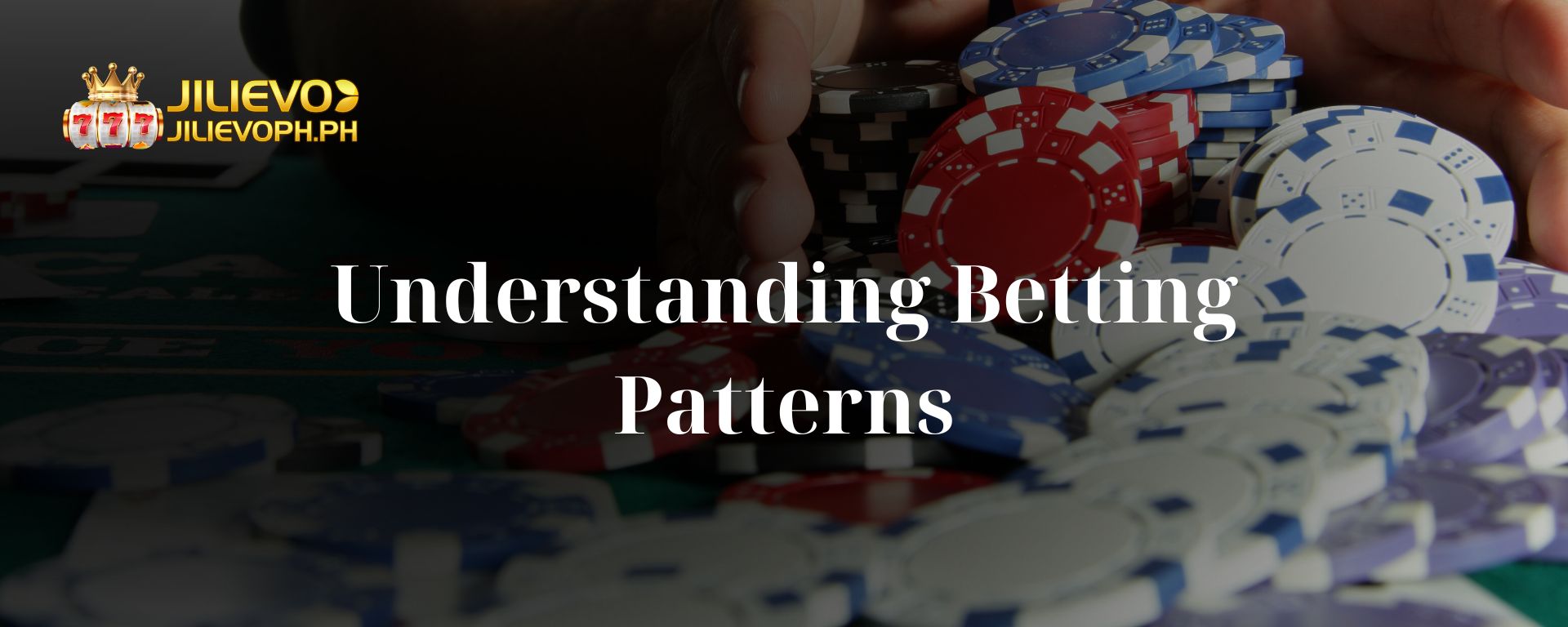
Poker can induce a whirlwind of emotions. The exhilaration of major wins, the discomfort of losses, and the weight of crucial decisions can derail your strategy if you allow feelings to take charge. It's essential to maintain your mental composure at the table for success.
Mastering Your Own Emotions
Tilt is the notorious nemesis of poker – a state characterized by frustration, anger, or reckless choices that muddles your judgment and leads to hasty, poor decisions.
Tilt: The Silent Saboteur
Getting involved in hands you normally would avoid
- Signs of Tilt:
- Chasing losses with desperate bets
- Making overly aggressive or overly cautious plays
- Becoming increasingly irritable or scattered
- Self-awareness: Acknowledge what triggers your tilt.
- Avoiding and Managing Tilt
- Take Breaks: If emotions start to surge, step away from the table to refresh your mind.
- Perspective: Keep in mind that bad beats and losing periods are inherent to the game.
- Seek Help: Don't hesitate to confide in a poker friend or seek professional assistance if tilt becomes a persistent issue.
- Stay Grounded After Victories: Don't let a string of wins inflate your sense of self-importance or alter your strategy.
Handling Wins and Losses
- Avoid Chase Losing: Trying to recoup losses immediately usually leads to deeper trouble. Respect your stop-loss limits and take a break when necessary.
- Cultivating a resilient mindset demands effort. Here’s how:
Mental Toughness in Poker
Focus on What You Can Control: While you can’t dictate the cards you're dealt, your decisions are in your hands.
- Embrace Discovery: Review both victories and losses to pinpoint areas for growth.
- Build Discipline: Adhere to your game plan without swaying based on your emotions.
- Mind Games and Table Dynamics
Poker transcends simply playing your cards; it involves engaging with your opponents. Grasping the table dynamics and employing psychological strategies can provide a significant advantage.
Bluffing: Persuading opponents that your hand is more powerful than it really is can induce them to fold, clinching you the pot.
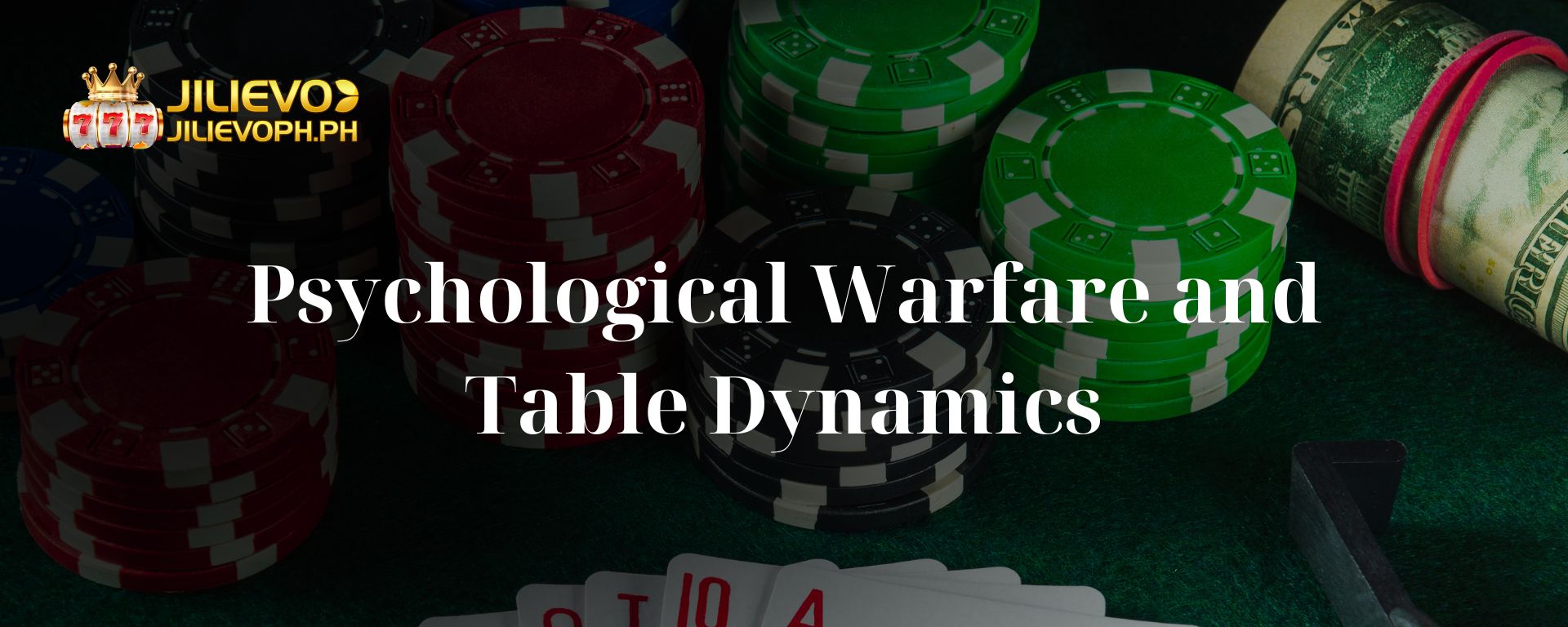
Deception: The Art of Disguise
- Slow-Playing: Making minimal bets with a strong hand can entice opponents to wager more, thereby enhancing the pot for your gain.
- Misdirection: Crafting a false narrative about your hand through your betting patterns or table conversation.
- Presence: Establishing Dominance
Even when your cards are lackluster, projecting confidence can sway your opponents’ behaviors:
Assessing the Table: Watch your opponents for signs of weakness or naivety.
- Calculated Aggression: A well-timed assertive play can shift timid players onto the defensive.
- Maintain Fortitude: Uphold a steady poker face and avoid displaying undue emotion, particularly under pressure.
- Your pattern of play over time shapes your table reputation, which can play to your advantage:
Table Image: Your Reputation Matters
Tight and Predictable: Cultivates trust, making it easier to execute bluffs when the time calls for it.
- Unpredictable and Aggressive: Keeps your opponents second-guessing and unsure of how to respond.
- Recognizing diverse player types assists you in customizing your approach:
Exploiting Opponent Weaknesses
Calling Stations: Players prone to simply calling can be targeted with value bets.
- Rocks: Cautious players become prime bluffing targets if you detect their wait for high-quality hands.
- Maniacs: Overly aggressive players make hasty errors and present opportunities for bluffs.
- Keep in mind: Psychological warfare is an art requiring finesse. Overt aggression and transparent bluffing can backfire against skilled players. The secret lies in maintaining a balance between artful deception and thoughtful play.
The psychological strategies developed at the poker table can transfer remarkably well into various life situations, particularly in making decisions under pressure and managing resources.
Psychology Beyond the Table
Budgeting for the Game: Economic Savvy
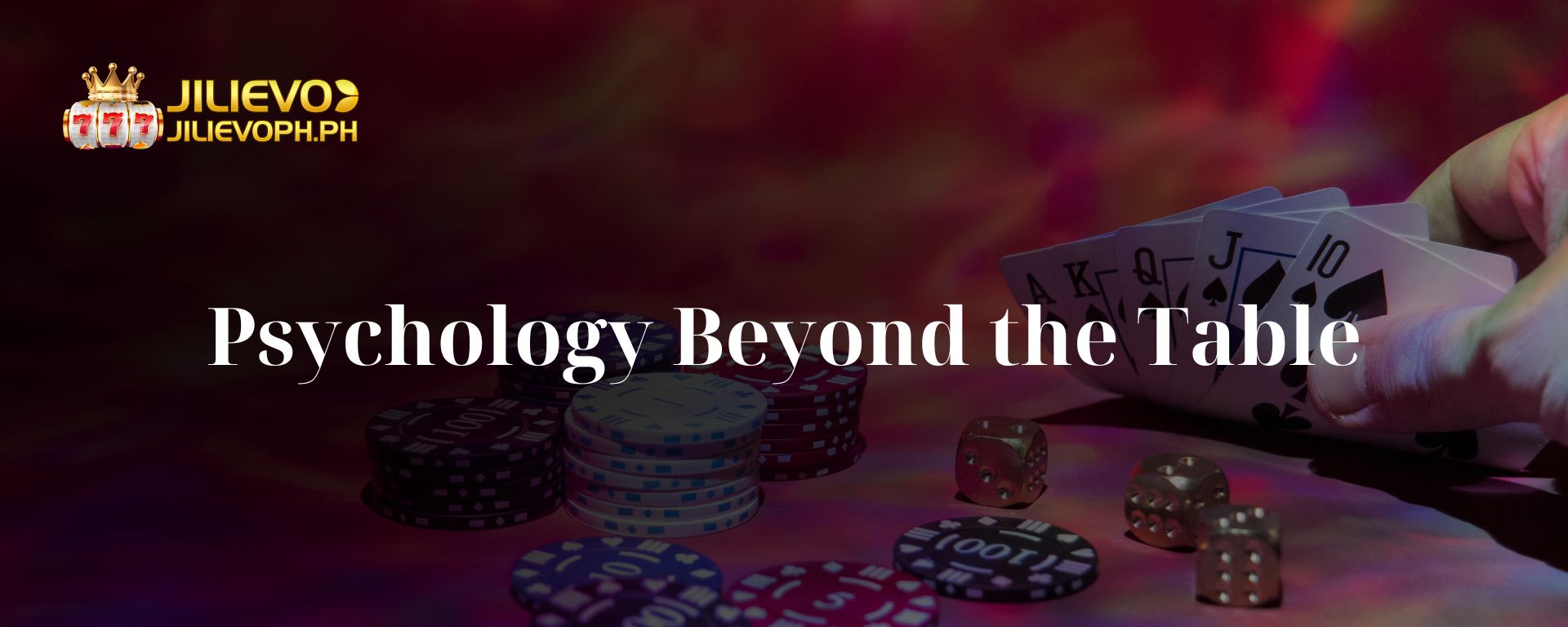
Your poker bankroll is like your investment portfolio. The psychological principles of self-discipline, risk evaluation, and sidestepping emotional choices are vital for sustained success in both poker and financial management.
Choosing Games Wisely: Enhancing Your Advantage
Selecting the right poker games is as critical as mastering your cards. Seek tables populated by players who are less experienced or whose styles complement your strengths. This concept parallels the importance of strategically choosing your battles and leveraging your strengths for the best outcomes.
The Art of Poker Psychology: Gain a Mental Edge for Success at Jilievo Casino
Developing a Poker Mindset
In the world of poker, just one hand can alter your destiny. However, beneath the surface of shuffling chips, strategic plays, and poker faces lies an intricate struggle – the battle for mental supremacy.
- Sign up for a new betting account today and snag a fantastic bonus of up to 120%!
- Poker is a game where a solitary hand can completely change someone's fortune. But if you look closely, there’s an unseen contest unfolding – a psychological duel. Mastering psychological aspects is equally as vital as grasping probability and honing your gameplay skills. Cultivating a robust mental strategy allows a decent player to rise to greatness, enabling them to outmaneuver adversaries, make wiser choices, and, ultimately, emerge victorious more frequently.
- Mind Games and Table Interaction
Establishing Dominance: Making Your Presence Felt
Managing Your Bankroll: A Commitment to Financial Wisdom
- Choosing the Right Game: Enhancing Your Competitive Advantage
- Psychological Insights Across Poker Variants
- Resources to Enhance Your Understanding of Poker Psychology
The psychology of poker encompasses grasping the mental and emotional influences that dictate player actions at the table. It involves reading opponents, mastering your emotional responses, and exploiting psychological vulnerabilities – both yours and theirs – to carve out a competitive advantage.
Poker thrives on incomplete information. You can formulate strategies endlessly, but the true nature of your opponents’ hands remains hidden. This uncertainty cultivates an atmosphere ripe for psychological manipulation and emotional exploitation. A player well-versed in the subtleties of poker psychology can effectively navigate the tumultuous ups and downs, execute thoughtful moves under duress, and detect when opponents are attempting to pull a fast one.
- In poker, every move (or lack thereof) serves as a potential indicator of hand strength. Learning to recognize these hints, often referred to as 'tells,' is an indispensable talent in your psychological toolkit.
- Physical Hints: Non-verbal cues can reveal a player’s true feelings. Keep an eye out for:
- Alterations in stance or breath rates
Conclusion
Eye behavior (avoiding eye contact might reveal weakness, while intense gazes could indicate strength) Jilievo Nervous tics, involuntary movements, or changes in facial cues

